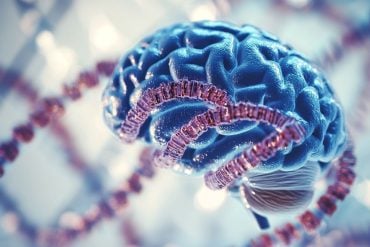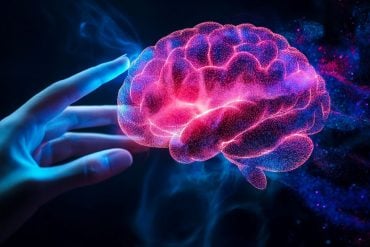Summary: Long-term COVID-19 symptoms, including brain fog, can significantly impair mental processes. Over 3,000 participants underwent two rounds of online cognitive testing, focusing on memory, attention, reasoning, processing speed, and motor control.
Those with prolonged COVID-19 symptoms saw effects comparable to a 10-year increase in age. Importantly, participants who felt fully recovered after their COVID-19 infection did not display impaired test performance.
Key Facts:
- The study showed that individuals experiencing long-term COVID-19 symptoms had a measurable decrease in mental process performance.
- The cognitive impact of prolonged COVID-19 symptoms was comparable to a 10-year increase in age.
- Participants who felt fully recovered after their COVID-19 infection demonstrated no significant cognitive impairment.
Source: King’s College London
UK researchers have found that people with longer-term COVID-19 symptoms including brain fog showed reduced performance in tasks testing different mental processes up to two years after infection with the virus.
Researchers from King’s College London looked at whether infection with COVID-19 affected performance in two rounds of online cognitive testing that took place in 2021 and 2022.
Data was collected for over 3,000 participants of the COVID Symptom Study Biobank study, across 12 tasks that tested memory, attention, reasoning, processing speed and motor control.
The participants whose test scores were most affected by COVID-19 were those who had experienced symptoms related to the virus for 12 weeks or more. In these people, the effect of COVID-19 on test accuracy was comparable in size to the effect of a 10-year increase in age.
There was no significant improvement in these test scores between the two rounds of testing, which took place nine months apart. By the second round of testing, the average time since participants’ initial COVID-19 infection was almost two years.
Digging deeper into the analysis, the researchers separated participants by whether they felt fully recovered following COVID-19 infection.
People who felt fully recovered after COVID-19 infection performed similarly to those who had not had the virus at all. In contrast, participants who did not feel fully recovered after infection had lower task accuracy scores on average.
Lead author Dr Nathan Cheetham, a Senior Postdoctoral Data Scientist at King’s College London said:
“Our findings suggest that, for people who were living with long-term symptoms after having COVID-19, the effects of the coronavirus on mental processes such as the ability to recall words and shapes are still detectable at an average of almost two years since their initial infection.
“However, the result that COVID had no effect on performance in our tests for people who felt fully recovered, even if they’d had symptoms for several months and could be considered as experiencing ‘long COVID’, was good news.
“This study shows the need to monitor those people whose brain function is most affected by COVID-19, to see how their cognitive symptoms continue to develop and provide support towards recovery.”
Professor Claire Steves, a Professor of Ageing and Health at King’s College London, added:
“We used sensitive tests to measure speed and accuracy across a range of brain challenges. This study shows that some individuals have measurable changes in these tests after COVID-19 going on for nearly two years.
“The fact remains that two years on from their first infection, some people don’t feel fully recovered and their lives continue to be impacted by the long-term effects of the coronavirus. We need more work to understand why this is the case and what can be done to help.”
About this Long-COVID and neurology research news
Author: Tanya Wood
Source: King’s College London
Contact: Tanya Wood – King’s College London
Image: The image is credited to Neuroscience News
Original Research: Open access.
“The effects of COVID-19 on cognitive performance in a community-based cohort: A COVID Symptom Study Biobank prospective cohort study” by Claire Steves et al. eClinical Medicine
Abstract
The effects of COVID-19 on cognitive performance in a community-based cohort: A COVID Symptom Study Biobank prospective cohort study
Background
Cognitive impairment has been reported after many types of infection, including SARS-CoV-2. Whether deficits following SARS-CoV-2 improve over time is unclear. Studies to date have focused on hospitalised individuals with up to a year follow-up. The presence, magnitude, persistence and correlations of effects in community-based cases remain relatively unexplored.
Methods
Cognitive performance (working memory, attention, reasoning, motor control) was assessed in a prospective cohort study of participants from the United Kingdom COVID Symptom Study Biobank between July 12, 2021 and August 27, 2021 (Round 1), and between April 28, 2022 and June 21, 2022 (Round 2). Participants, recruited from the COVID Symptom Study smartphone app, comprised individuals with and without SARS-CoV-2 infection and varying symptom duration. Effects of COVID-19 exposures on cognitive accuracy and reaction time scores were estimated using multivariable ordinary least squares linear regression models weighted for inverse probability of participation, adjusting for potential confounders and mediators. The role of ongoing symptoms after COVID-19 infection was examined stratifying for self-perceived recovery. Longitudinal analysis assessed change in cognitive performance between rounds.
Findings
3335 individuals completed Round 1, of whom 1768 also completed Round 2. At Round 1, individuals with previous positive SARS-CoV-2 tests had lower cognitive accuracy (N = 1737, β = −0.14 standard deviations, SDs, 95% confidence intervals, CI: −0.21, −0.07) than negative controls. Deficits were largest for positive individuals with ≥12 weeks of symptoms (N = 495, β = −0.22 SDs, 95% CI: −0.35, −0.09). Effects were comparable to hospital presentation during illness (N = 281, β = −0.31 SDs, 95% CI: −0.44, −0.18), and 10 years age difference (60–70 years vs. 50–60 years, β = −0.21 SDs, 95% CI: −0.30, −0.13) in the whole study population. Stratification by self-reported recovery revealed that deficits were only detectable in SARS-CoV-2 positive individuals who did not feel recovered from COVID-19, whereas individuals who reported full recovery showed no deficits. Longitudinal analysis showed no evidence of cognitive change over time, suggesting that cognitive deficits for affected individuals persisted at almost 2 years since initial infection.
Interpretation
Cognitive deficits following SARS-CoV-2 infection were detectable nearly two years post infection, and largest for individuals with longer symptom durations, ongoing symptoms, and/or more severe infection. However, no such deficits were detected in individuals who reported full recovery from COVID-19. Further work is needed to monitor and develop understanding of recovery mechanisms for those with ongoing symptoms.
Funding
Chronic Disease Research Foundation, Wellcome Trust, National Institute for Health and Care Research, Medical Research Council, British Heart Foundation, Alzheimer’s Society, European Union, COVID-19 Driver Relief Fund, French National Research Agency.







